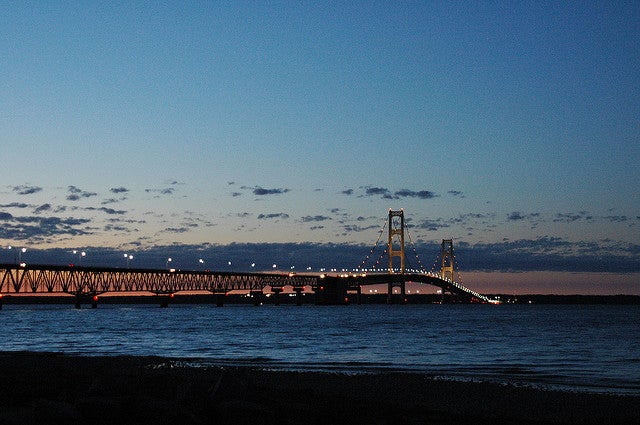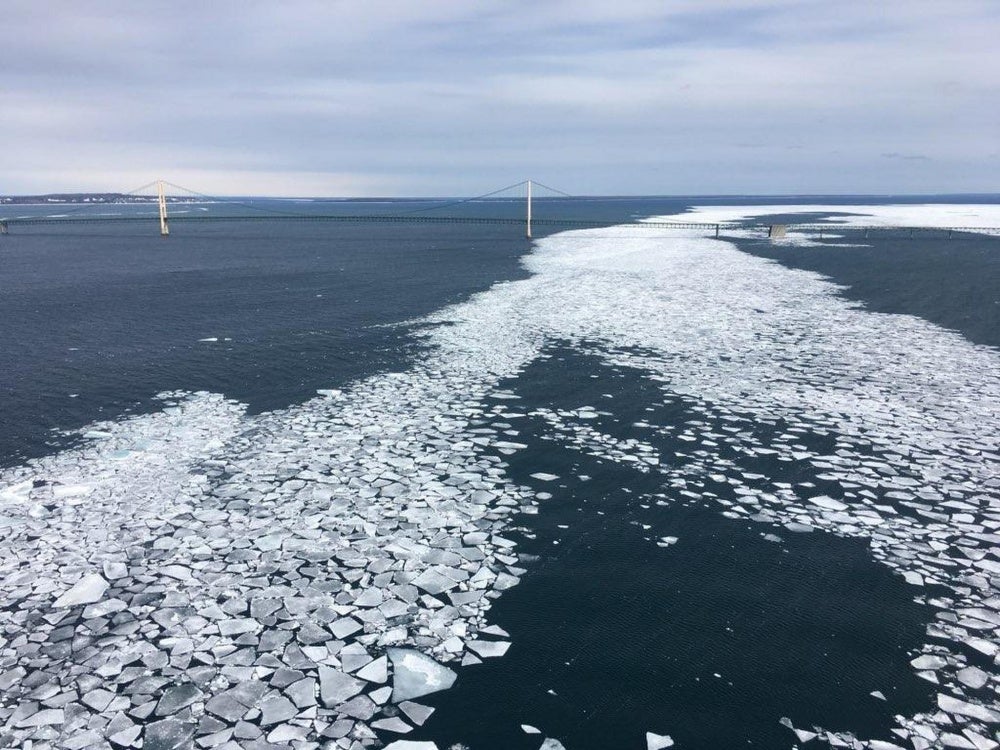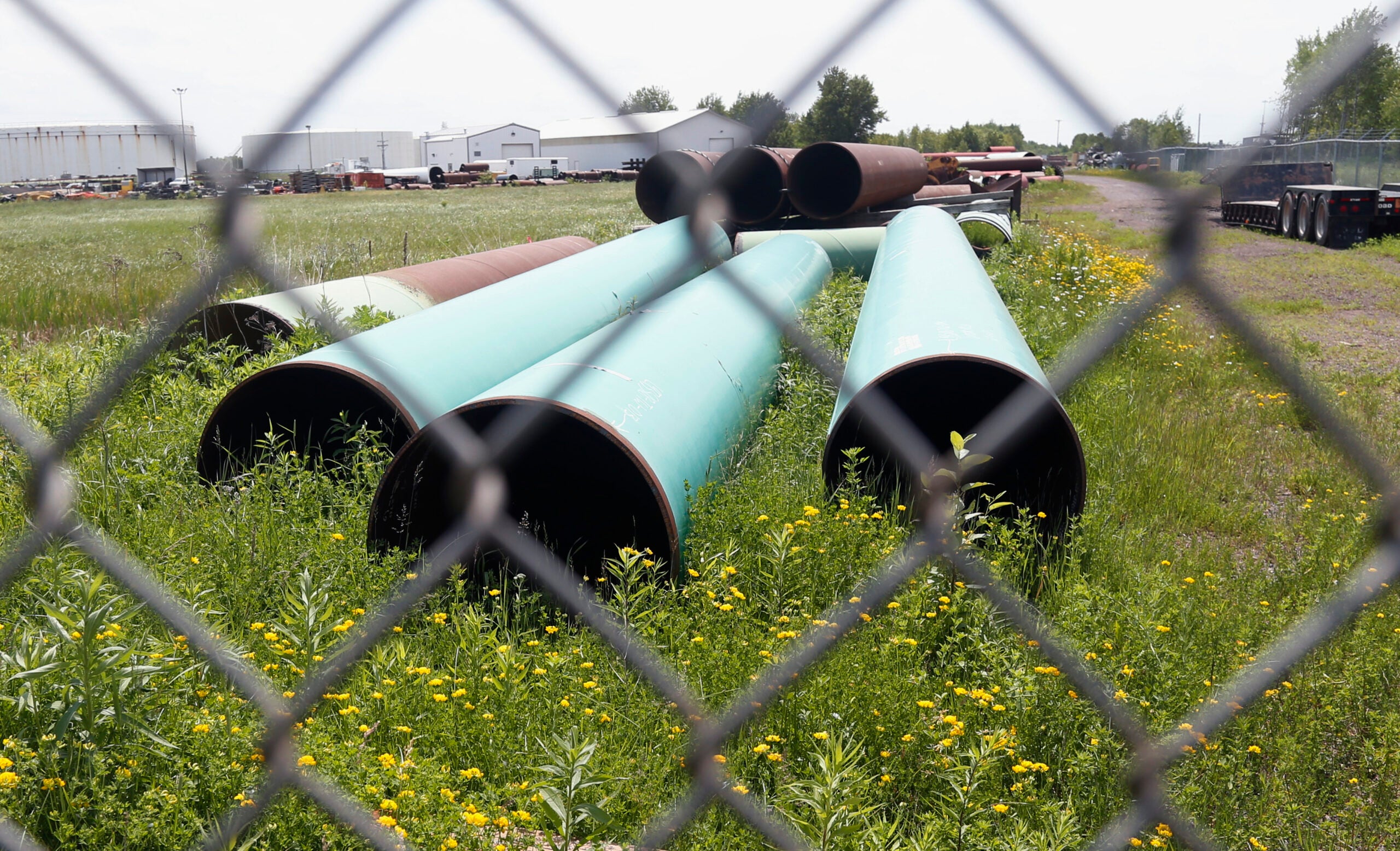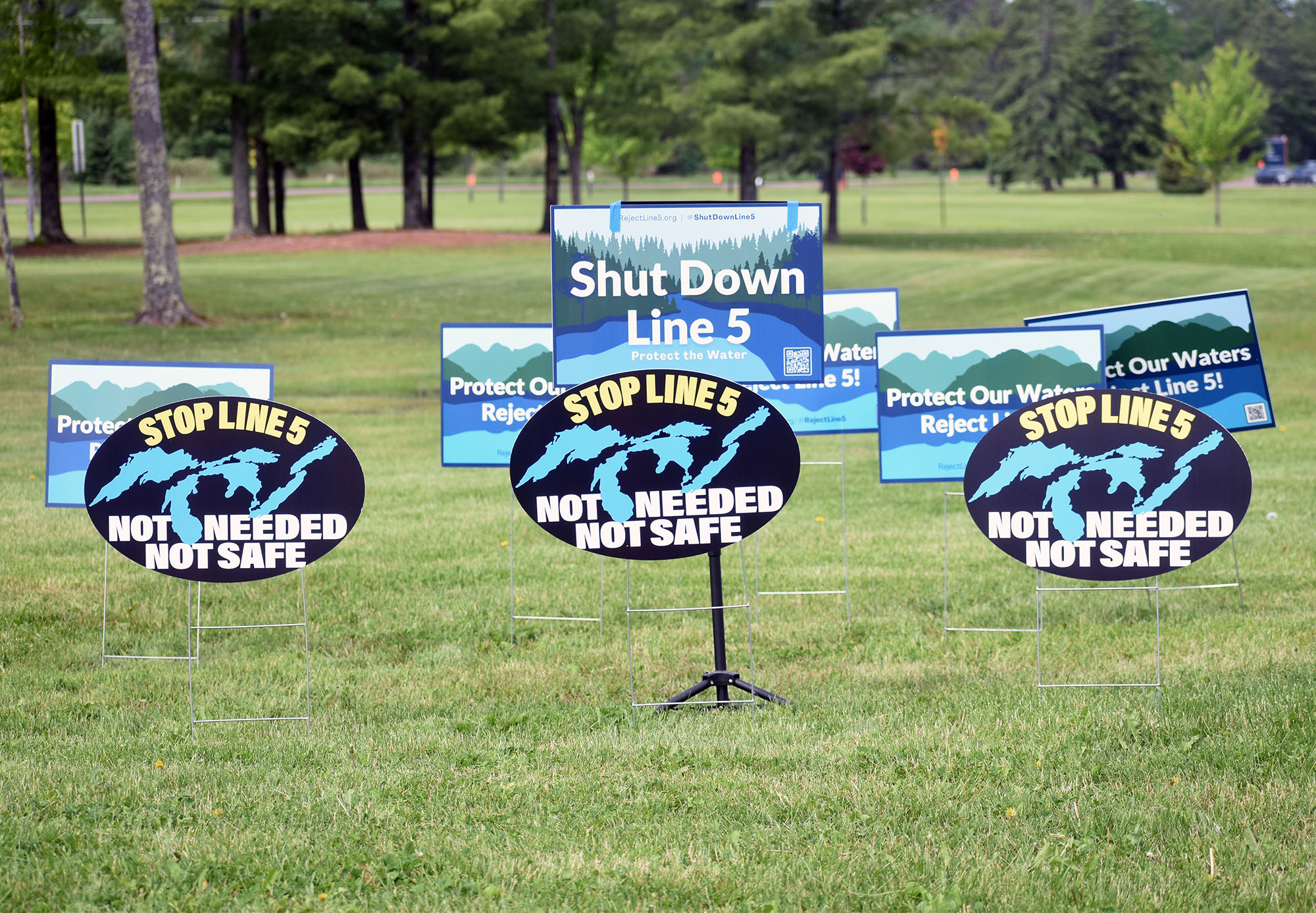Two advocacy groups say the U.S. Coast Guard doesn’t have an adequate strategy for dealing with oil spills in the channel linking lakes Huron and Michigan.
The Coast Guard approved a plan last year for responding to spills in northern Michigan, including the Straits of Mackinac. A section of Enbridge Inc.’s Line 5 oil pipeline runs beneath the straits.
In a federal suit filed on Wednesday, the Environmental Law & Policy Center and the National Wildlife Federation said Coast Guard leaders have acknowledged they’re unprepared to clean up a spill in open Great Lakes waters.
Stay informed on the latest news
Sign up for WPR’s email newsletter.
“We see those two things as patently inconsistent. You can’t approve a plan that needs to be able to demonstrate that you can respond to an oil spill and then later say, ‘Actually, we’re not ready to do so,’” said Margrethe Kearney, senior attorney for the Environmental Law & Policy Center.
Kearney pointed to comments made by former Coast Guard Commandant Adm. Paul Zukunft. Several months after approving the new contingency plan, Zukunft said during a congressional hearing that the agency isn’t prepared for a major pipeline oil spill in the Great Lakes.
“That testimony triggered legal concerns and we began to investigate,” Kearney said. “Intervening events kind of actually accelerated the need to say ‘Look, if we’re going to have this very risky pipeline in the Straits of Mackinac, we really need to know that there is an ability to respond to a worse-case oil spill from that pipeline.’”
In April, Enbridge reported that it discovered dents on Line 5 likely caused by an anchor strike. Last month, a new report from Michigan Technological University found more than 2.4 million gallons of oil would be released into Lake Michigan and Lake Huron if a worst-case spill happened on the pipeline. Enbridge has said such a spill is “extraordinarily unlikely.”
Without a valid response plan from the Coast Guard, Kearney said Line 5 can’t legally operate.
“We absolutely should not be allowing companies to operate in areas where we can’t respond to an oil spill and it’s important to hold the Coast Guard to that legal obligation,” Kearney said.
Coast Guard spokesman Master Chief Alan Haraf said the agency does not comment on pending litigation. He said in an email that the Guard has a “robust” process for approving spill response plans.
“Each of us has family, friends and colleagues who work and play throughout the Great Lakes region and ensuring there are plans in place that protect the public and our environment will always be a top priority,” Haraf said.
Enbridge spokesman Ryan Duffy declined to comment specifically on the lawsuit. In a statement, he said the company “can draw upon considerable combined resources” in the event of an emergency near the Straits. He said the Coast Guard “would augment any response.”
Editor’s note: This story was updated at 2:45 p.m. Thursday, Aug. 23 with original reporting by WPR staff.
Wisconsin Public Radio, © Copyright 2025, Board of Regents of the University of Wisconsin System and Wisconsin Educational Communications Board.






